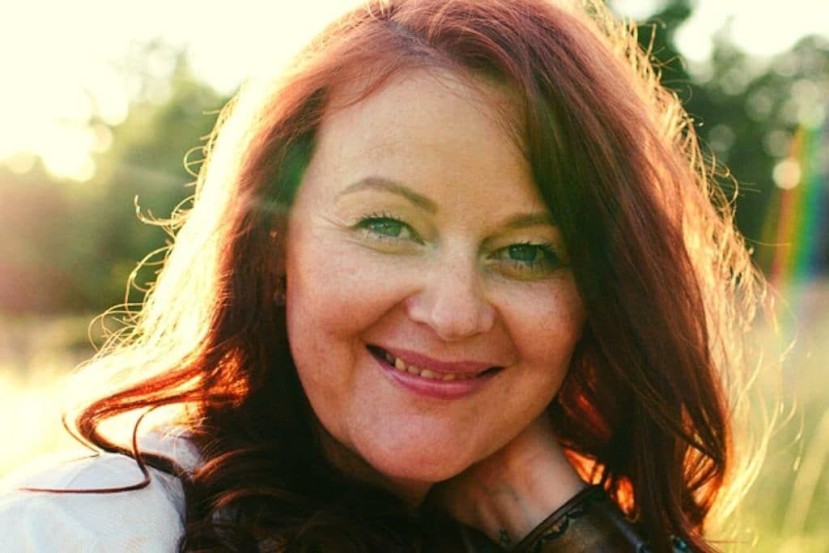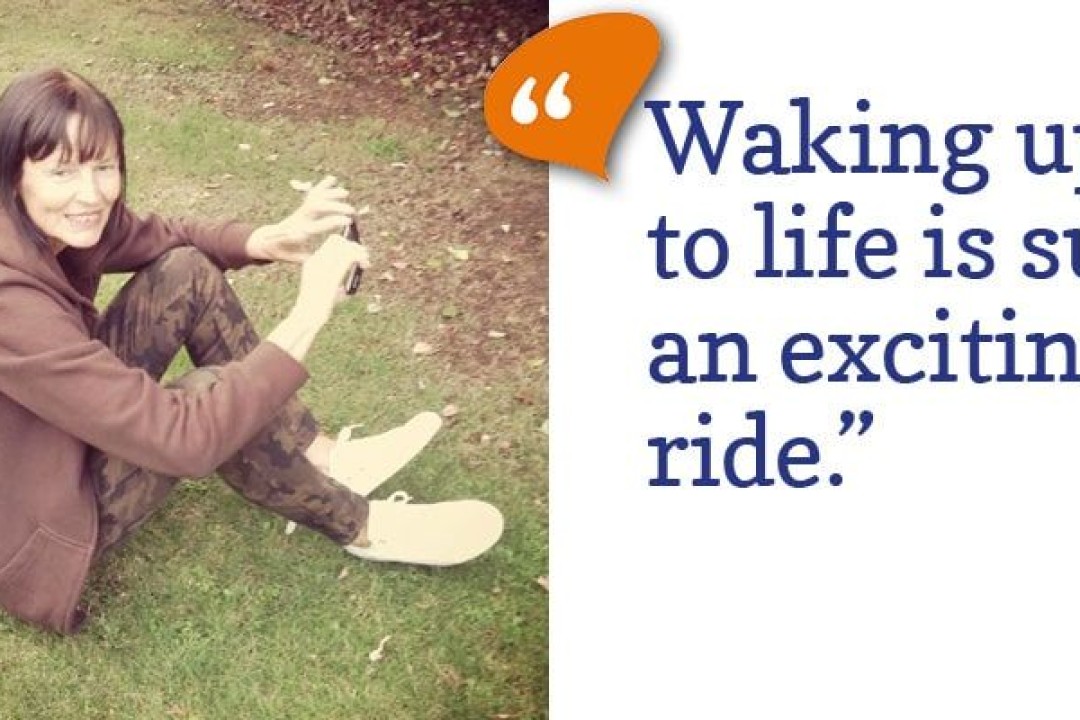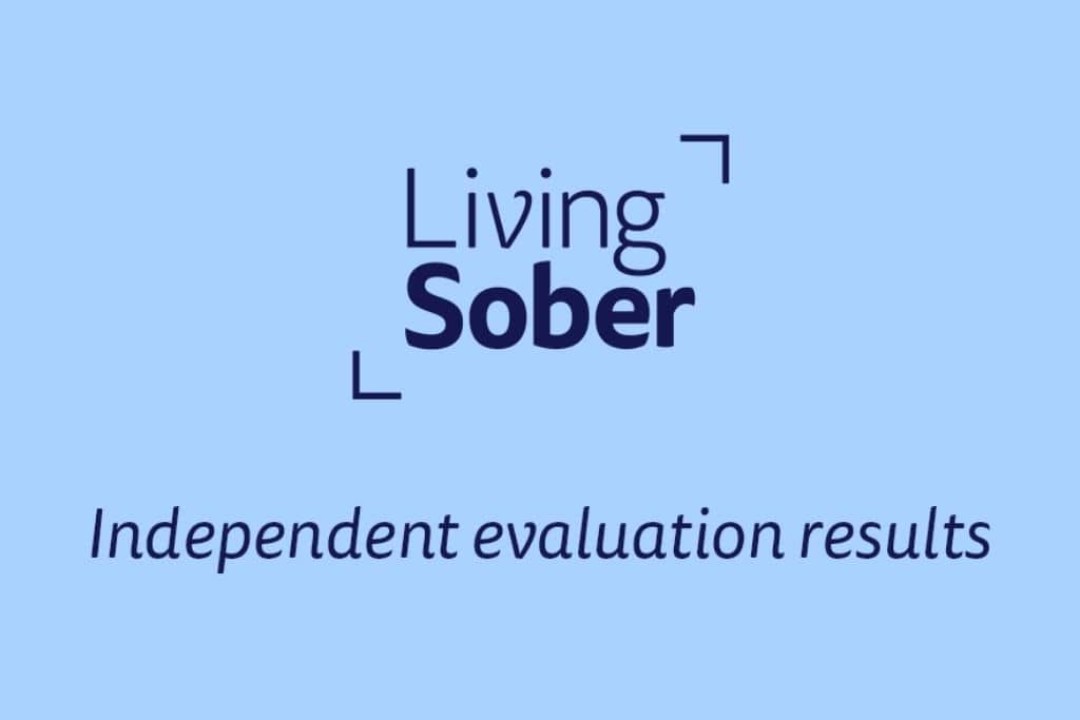Sober Story: Sas
November 1st, 2021 Interviews 11 comments

This week’s Sober Story comes from Sas, a 47-year-old kiwi currently living in Berkshire, England.
===========
Mrs D: How long have you been in recovery?
Sas: 9 years.
Mrs D: What can you tell us about the last months/years of your drinking before you gave up?
Sas: My life back then, is completely unrecognisable to me now. I was in the biggest job of my life, six months in to my second marriage and convinced I was going to do or say something to ensure I was either fired, or my husband would leave me. I was also grieving the sudden death of my beloved mother. I felt completely unable to ask for help and I was encased in emotional armour that drinking was a huge part of. I was working in the financial district in London and there were at least half a dozen bars within a block of my office. After work I would be there with whomever from work, drinking bad red wine on an empty stomach. Just enough to take the edge off. But I had no off switch. I’d been living in London for 7 years, during which my Mum had died and my first husband had left me for a Canadian stick insect. I’d found the best cure for grief and loss by far, was vodka. I’d spent years travelling around Europe, adventuring and partying and putting myself in incredibly risky situations that seemed hilarious at the time. I had always had a love affair with alcohol, and both my parents were heavy drinkers (but no more so than their friends). Growing up in the 80s, there was always wine (in a box with the little tap – remember those?!) in our fridge. As a teenager, I looked the oldest of my friends and would be the one who went into the bottle store for half a dozen bottles of pink Chardon. At University I learnt how to ‘bong’ a pint of Speights, and won the beaming pride of my male flatmates. So on my OE, I was first to jump in the fountain or suggest tequila shots, always the last one home. I was the party. Except when I wasn’t. When I left the travelling and the living-in-the-moment adventures to seek out True Love and a Proper Future. Within a year, I had a mortgage, a pension plan and a steady bloke. But I found myself overwhelmed with the suffocating miasma of having created a life I wasn’t sure I was capable of showing up for. Suddenly I had so much more to lose. So I think I tried to run away without leaving. And drink is perfect for that.
Mrs D: Wow that’s quite a story. What happened that made you quit drinking?
Sas: I woke up on the 3rd of January 2012 to a crippling hangover. As flashbacks from the night before slowly took shape, I felt an increasing shame in the pit of my belly. The stress of work combined with my drinking, was turning me into a mean drunk. The night before I had said cutting, hurtful things to people I loved deeply, in pursuit of a cheap laugh. I couldn’t remember the last night I’d had without a drink. I didn’t like who I was becoming and I knew that I was not ok. I quietly decided that I was going to stop drinking.
Mrs D: I love that it happened in a quiet moment for you. How did you find it at first?
Sas: After the shame of that night wore off, there was a strange euphoria that took hold (much like the first days of a diet). I felt determined and focused and in control. But removing the option of drink was like lifting up a massive rug to find all the emotional detritus I’d swept out of sight. Over the following weeks and months, up came all the feelings I’d spent a lifetime avoiding. My sadness terrified me, and I fought against it with anger. And I didn’t know how to be angry without it spilling over into a scary vortex of rage that sucked the love out of everyone in the room.
Mrs D: I can relate. How did your family & friends react?
Sas: My husband was incredibly supportive and loving and even typing this, years later, my eyes are welling up with just how lucky I got meeting him. We talked a lot about his experience of my drinking and while horrible to face up to, I think it helped to establish a level of honesty and trust in our marriage that has fortified us.
Mrs D: Have you ever relapsed?
Sas: No.
Mrs D: How long did it take for things to start to calm down for you emotionally & physically?
Sas: Probably about three months. I suspect it might have taken longer, but in the process of getting sober I realised that I was completely burnt-out and I left my job. Taking myself out of all that stress helped me sleep better, stay hydrated, eat more vegetables – all very necessary aspects of self-care.
Mrs D: How hard was it getting used to socialising sober?
Sas: This was one of the hardest parts of getting sober as I found I was very attached to my ‘work hard play hard’ identity. I discovered an undercurrent of fear that if I wasn’t drinking, everybody would think I was weird, pregnant, a Christian, or The Worst Thing: boring! All of these things were called into question. And I stopped get invited to the after after work drinks that only the cool kids knew about. It hurt until it didn’t.
Mrs D: Was there anything surprising that you learned about yourself when you stopped drinking?
Sas: It might seem obvious but now I’m all me, all the time. I’m consciously myself in every context, with every person, at any given moment. I trust myself to show up as me every single time. This is a world away from often feeling like a sham fortune teller, trying to read body language clues to help me figure out what I had said the night before. I used to spend a lot of time apologising.
Mrs D: How did your life change?
Sas: After I stopped drinking and got sober, I spent three months recovering from the stress burnout, during which time my ambition for corporate stardom just evaporated. I’d spent 20 years managing teams of engineers and scientists and technologists, and my colleagues trusted me with their secrets and fears, their dreams and ideas. These conversations had always been the best part of my job. I have since retrained as a coach, eventually completing a Masters Degree at Oxford. I now run a full time practice, and lead retreats and workshops around the world. But you know, the biggest change is that I’m so fucking awake. Particularly in that first hour of the day, just before the sun comes up – and as drinkers know, mornings can often be the worst time of the day. Now my mornings are precious time to connect with myself and the vast mystery of everything. It’s when I tend to have the best ideas for what to write and share and create.
Mrs D: Wow what a great turnaround you’ve had! Can you pinpoint any main benefits that have emerged from getting sober?
Sas: I grew up in a family where any big display of emotion was part of our ‘gipsy, Italian, Scottish heritage’: we were people with big feelings. And we had them all the time. But the power of these emotions seemed to overtake my reasoning, I was emotionally ‘leaky’ and often felt out of control. And because I had few tools to be with my feelings, I was constantly looking for corks to bung the leaks. Drama filled relationships, constant spending, travel adventures and vodka: all excellent ways of dulling and distracting me from any emotion. When I drank, I often felt as if my emotions were a short distance away from me. In the last five years, I’ve learned how to access my life – to feel the full spectrum of my emotions. I’ve found that no emotion is permanent, and few require an immediate response.
Mrs D: I love that ‘no emotion is permanent, and few require an immediate response’, such a simple yet really powerful phrase. Would you do anything differently given the chance to go through the process again?
Sas: I would ask for help! I was embarrassed to go ask for help, shameful of my own weakness. I never went to AA as I wasn’t sure I was ‘qualified’ to attend those meetings. It took me decades of behaving thus, to write the word ‘alcoholic’ in my journal as an adjective, rather than a noun. That word wields so much power, I could have been a student at Hogwarts not mentioning Voldemort.
Mrs D: Do you have any advice or tips for those who are just starting on this journey?
Sas: Don’t wait until you hit rock bottom – if your drinking is creating unwanted impacts in your life, it’s worth looking into why. Seek support – you really don’t have to do this alone. But I would say be quite discerning over who you ask for help. I’ve found that most people in our lives have a vested interest in what we do, and are often full of unqualified advice.
Mrs D: Anything else you’d like to share?
Sas: Don’t get sober to be good – do it to be free.
You can learn more about Sas here.
Continue reading
Sober Story: Suzy
This week’s Sober Story comes from Suzy, a 69-year-old living in Auckland.
May 2, 2018 – 11 comments
Give yourself a pat on the back
Whether you are newly sober, or have been living without alcohol for some time, you deserve a big humungous pat on the back.
September 14, 2023 – 4 comments
Life after sober
This post follows on from @suek’s last guest post ‘When Sober Gets Old‘.
December 7, 2015 – 7 comments
Living Sober Evaluation Results
Earlier this year the independent evaluation company, Cogo, were engaged by the New Zealand Drug Foundation, who manage Living Sober, to carry out an evaluation of our site.
December 16, 2021 – 17 comments


